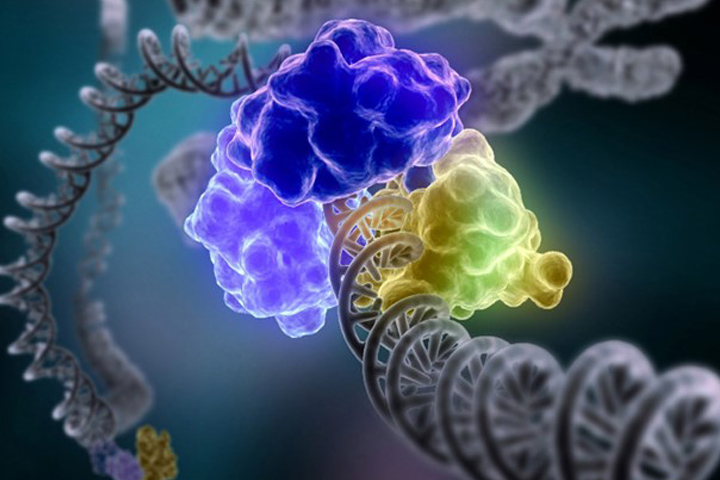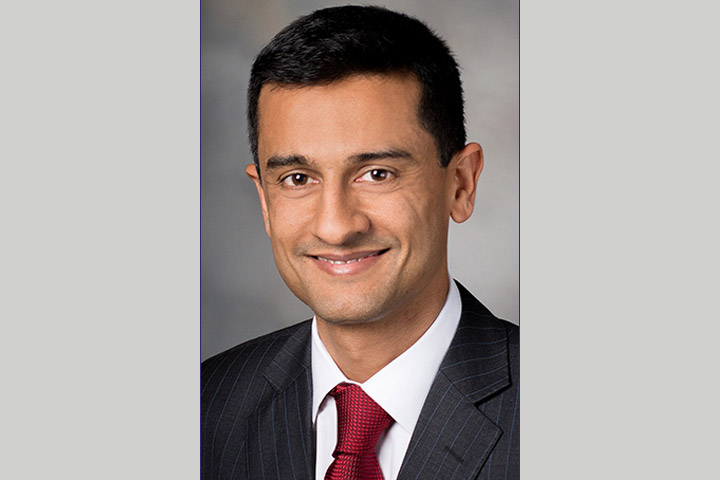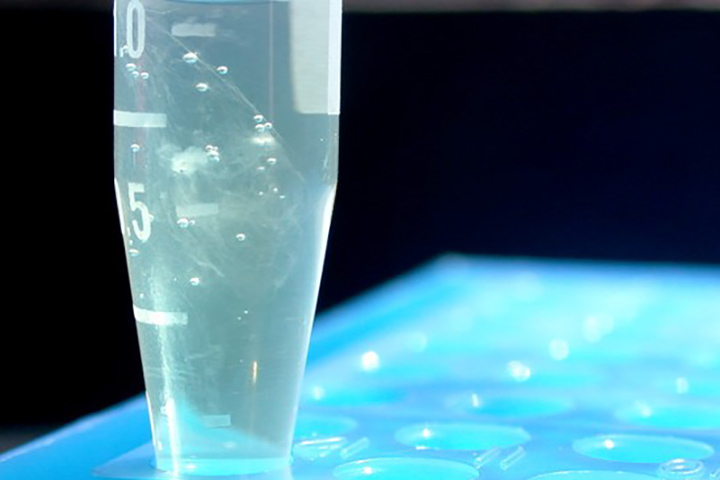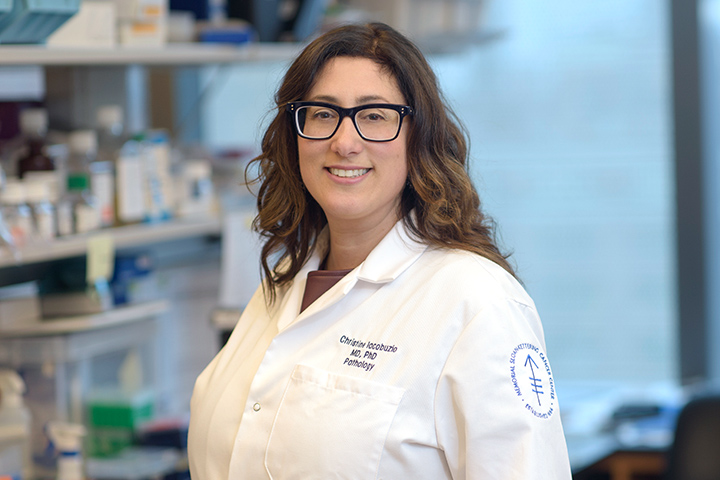Genetic Mutations and Family History
How do genetic mutations impact treatment? Learn why genetic testing is important for treatment and what the latest research is finding about treatments.
47 Articles

Testing an Approved Drug for a Specific Mutation
Researchers are testing a drug combination for melanoma in pancreatic cancer patients with a BRAF genetic mutation.

New Study Aims to Reduce Recurrence Risk for Select Patients
Dr. Kim A. Reiss is leading a study of the PARP inhibitor olaparib to delay or prevent a recurrence of surgically removed pancreatic cancer.

Using Molecular Tumor Profiling to Determine the Best Pancreatic Cancer Treatment
A clinical trial looks at whether molecular subtyping of tumors is effective in determining the best pancreatic cancer treatment.

Targeting the Undruggable KRAS Protein
Dr. Shubham Pant is focusing his research on effective treatments for the KRAS mutation, found in 90% of pancreatic cancers.

PARP Inhibitor as Maintenance for Pancreatic Cancer Patients with BRCA1, BRCA2, or PALB2 Mutations
A new clinical trial tests a PARP inhibitor as maintenance treatment for pancreatic cancer patients with BRCA1/2 or PALB2 mutations.

Chemotherapy Plus Stem Cell Infusion and Vitamins for BRCA Mutated Pancreatic Cancer
A clinical trial for pancreatic cancer patients with a BRCA mutation uses a combination of chemotherapy, vitamins, and stem cells.

Improving Access to Genetic Testing and Counseling
Dr. Angela Bradbury is leading a study on access to genetic testing and genetic counseling, including a telehealth option.

Targeting Mutant KRAS with Immunotherapy
Dr. Beatriz Carreno explains how her team is targeting the KRAS mutation with a pancreatic cancer vaccine to make the immune system work against cancer.

Exploiting DNA Mutations For Pancreatic Cancer Treatment
Dr. James Cleary explains how the researchers at Dana-Farber are looking to make PARP inhibitors even more effective for pancreatic cancer patients.

Using Tumor Tissue Samples to Break Down Assumptions About Pancreatic Cancer
Dr. Christine Iacobuzio-Donahue uses tumor tissue samples to study how pancreatic cancer tumors develop, so she can find ways to stop the disease.

Dousing Out-of-Control KRAS Signaling in Pancreatic Cancer
Rene Bernards and his team are targeting the signaling pathway of the KRAS mutation, which occurs in almost all pancreatic cancers.

GENERATE Study Aims to Improve Genetic Testing and Prevention for Pancreatic Cancer
Dr. Sapna Syngal outlines the GENERATE study, which aims to help families with a risk for pancreatic cancer by providing genetic testing.

Damage as a Way to Repair Pancreatic Cancer
Dr. Talia Golan takes a closer look at the damage caused by the BRCA1/2 mutations to find a way to treat pancreatic cancer.

